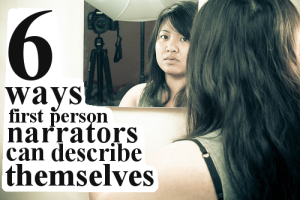
Facepalm! [img by striatic]
I wrote draft after draft based on a myriad of tips, but never seemed to make any progress. We all got frustrated, zingers were exchanged, more patient folk tried to explain again and again, and eventually I stupidly decided to go with an excerpt of the book, and left the forum. To my chagrin, you can still find the entire conversation when you Google my name.
But now that I have a successful query letter (if not a finished novel), I stopped to wonder what went wrong on that forum. To find out, I trekked back to the scene of the crime and reread 4+ pages of facepalm moments and harsh reminders of the gross literary inadequacies of my youth (which wasn’t even that long ago).
Here, I pinpoint where things went wrong—and explain how you can avoid the same mistakes.
1. We didn’t understand one another
We were all writing English, but I didn’t really understand what they were telling me and they didn’t understand why. I should have realized this when, after several drafts, I wasn’t getting any closer.
Lesson learned: If you need feedback, don’t post your work on a public forum (or blog) run by strangers. Get to know the people first. Read their other posts. Make sure you understand their semantics and respect their opinions before you ask them for advice.
2. Conflicting advice
Some said to focus on the protagonist, forget the alternate story; others said to focus on the way the two stories fit together. Some said to simply state the connection between the two; others said that was boring. Some even posted examples of successful queries that broke major rules. And since I didn’t know these people, I didn’t know whose opinion to choose.
Lesson learned: If getting advice from a group, don’t try to please all of them. See if you can identify and solve one general problem they all agree you have. (I had two: the hook was confusing and boring.)
3. I didn’t know what “show, don’t tell” meant for a query letter
I asked how “just tell us what it’s about” fit in with “show, don’t tell,” but they didn’t understand the conflict. I’ve since learned: Telling in a query letter refers to fluff language like “gripping,” “page-turner,” “heartwarming,” or anything that tells the agent how the book is going to make them feel.
Lesson learned: Don’t tell the agent how to feel – tell them the parts of the story that will make them feel that way. (Read more about showing vs. telling here.)
4. They kept telling me what was missing, but not what was needed
Chop a book down to two paragraphs and of course things will be missing. Anyone can point out what isn’t there, from the villain’s motive to what makes the protagonist relatable. But that doesn’t mean these things belong in the query. I kept cramming facts in, but the real problem wasn’t that it lacked information: it was just boring.
Lesson learned: Write down the most interesting (yet plot-relevant) facts about your characters, world, and story. Try building your hook around those things.
5. I attempted to tell what the story was really about
This is what everyone tells you to do, and what they told me to do. But it’s wrong.
Lesson learned: If your plot is complex, you cannot tell what it is “really” about. You don’t have the space. Instead, tell what the story seems to be about, in the first fifty pages of the book. (More on that in this post about hook-writing.)
—
Have you ever had a bad experience with an online writing community? What did you learn from it?
—





